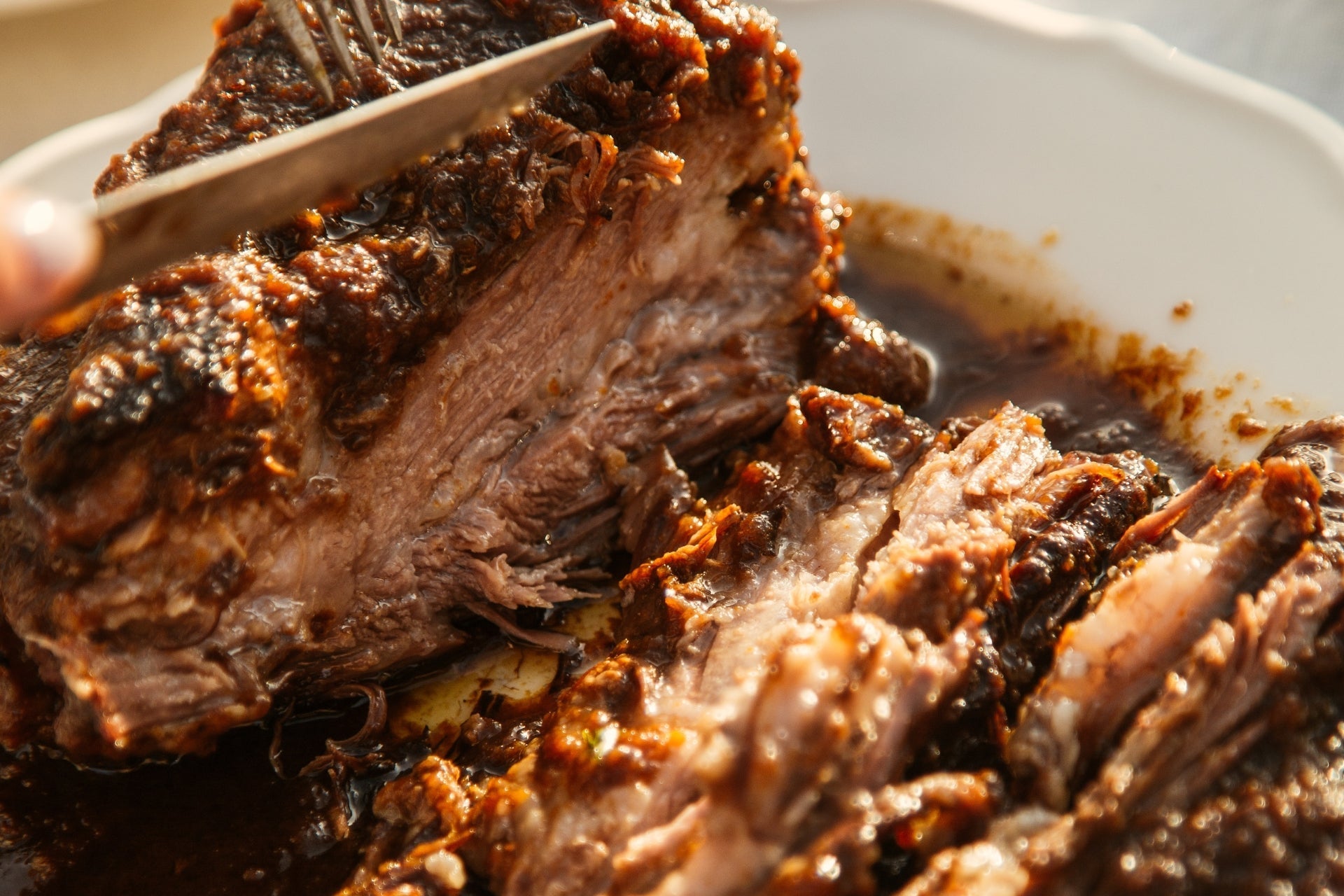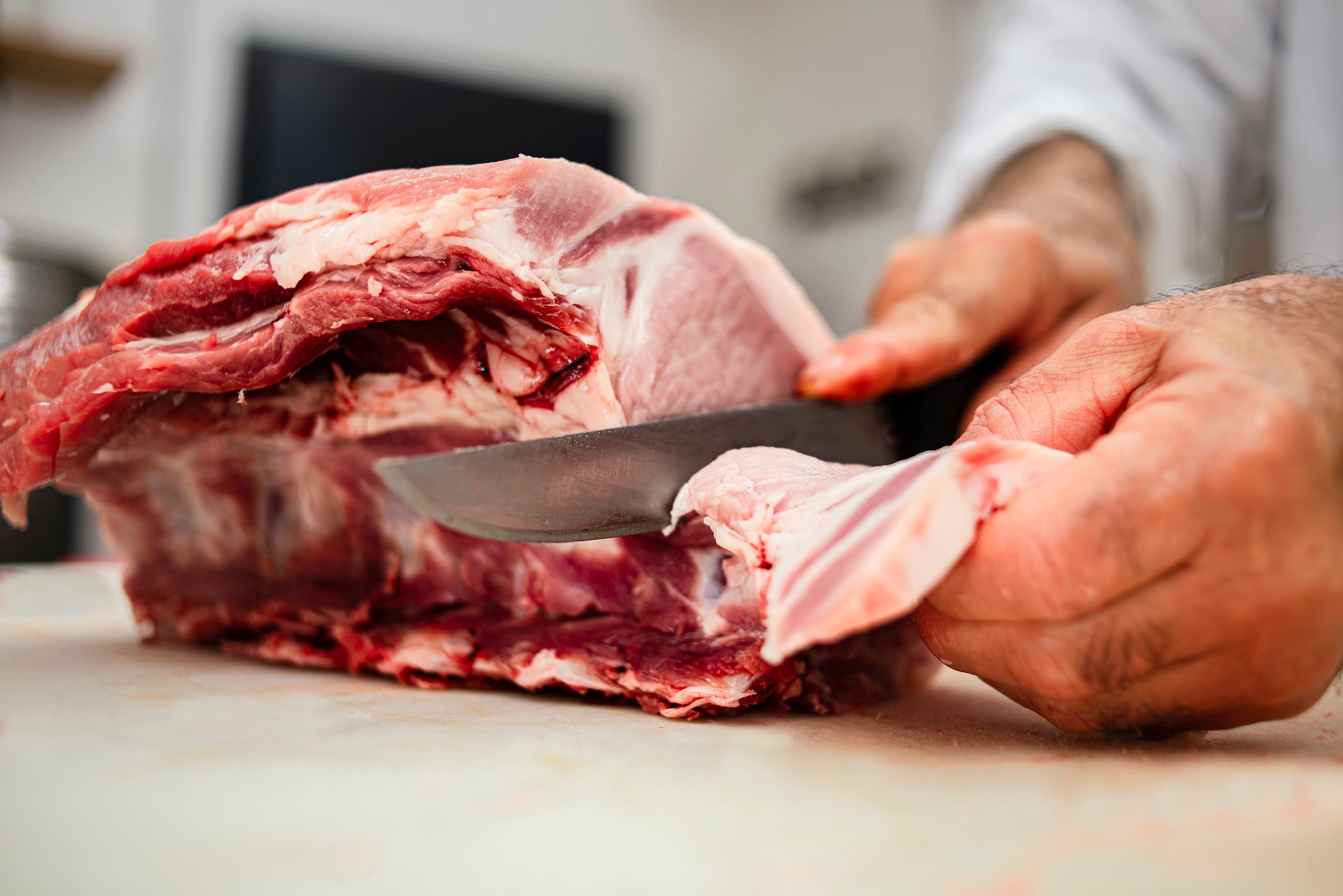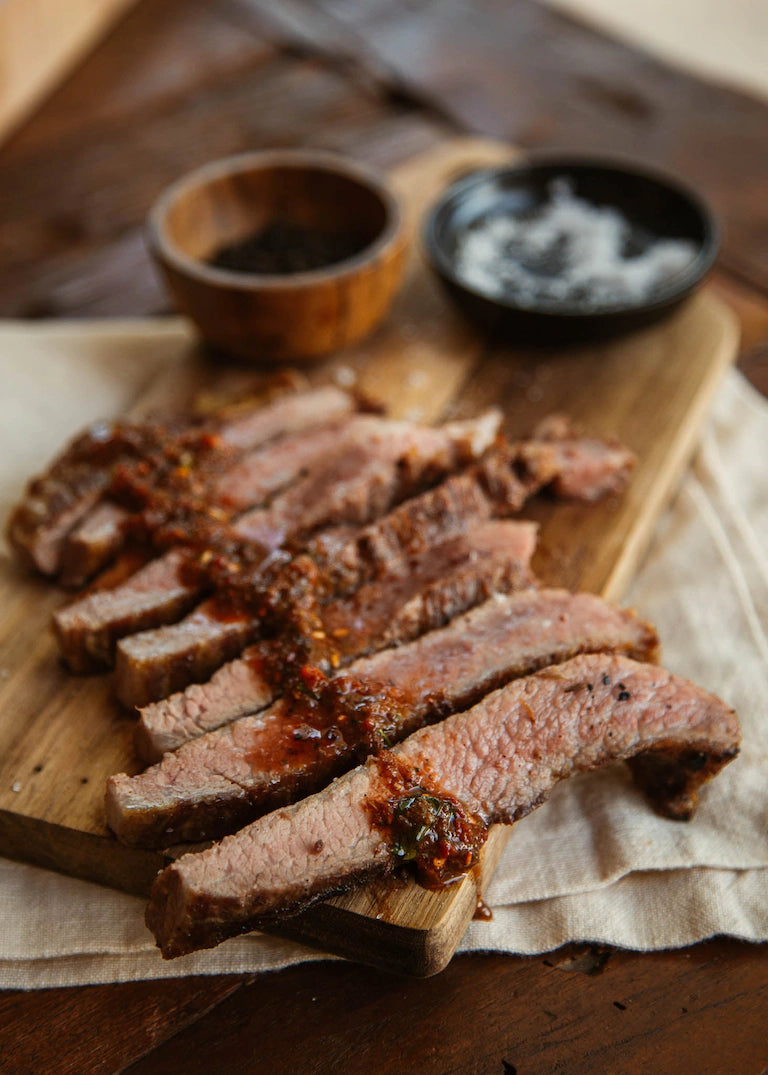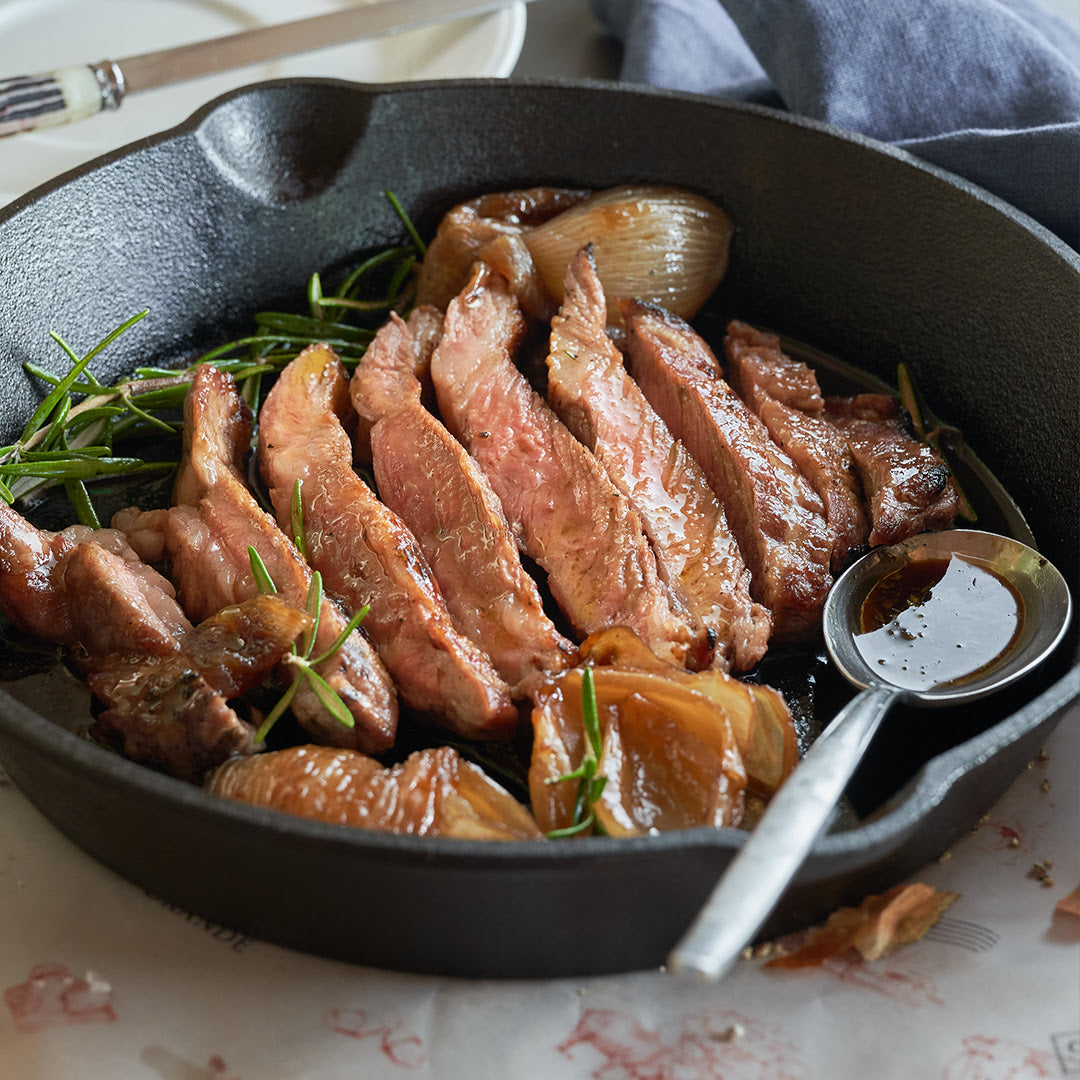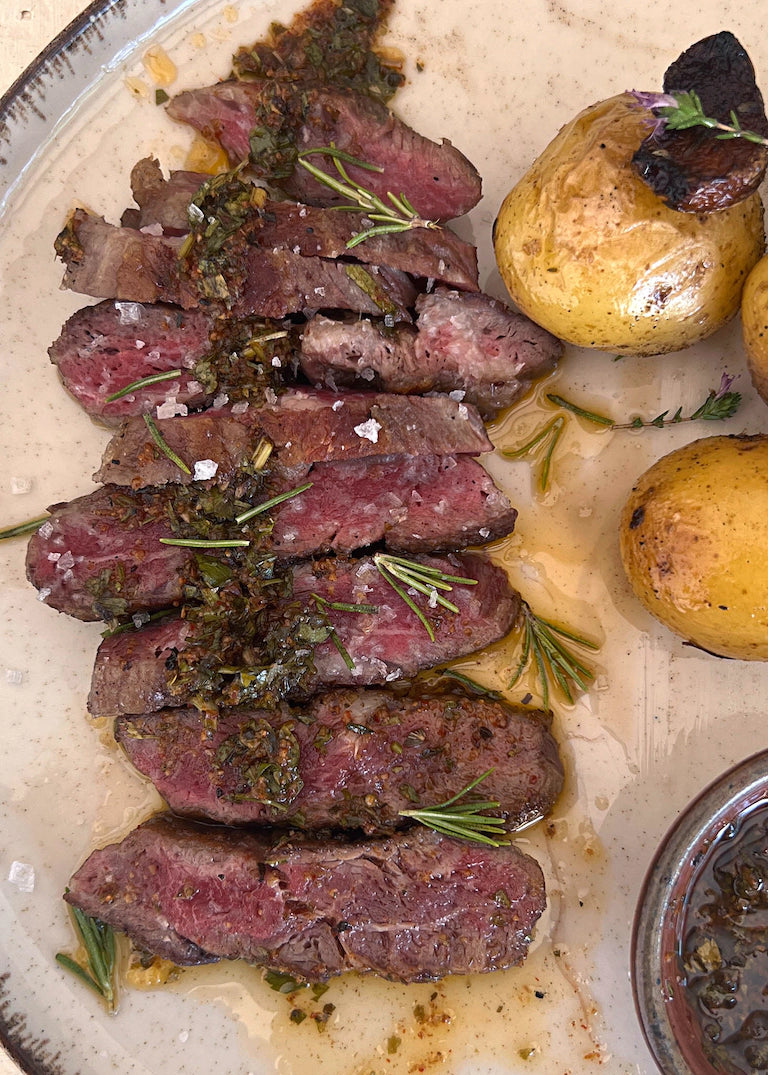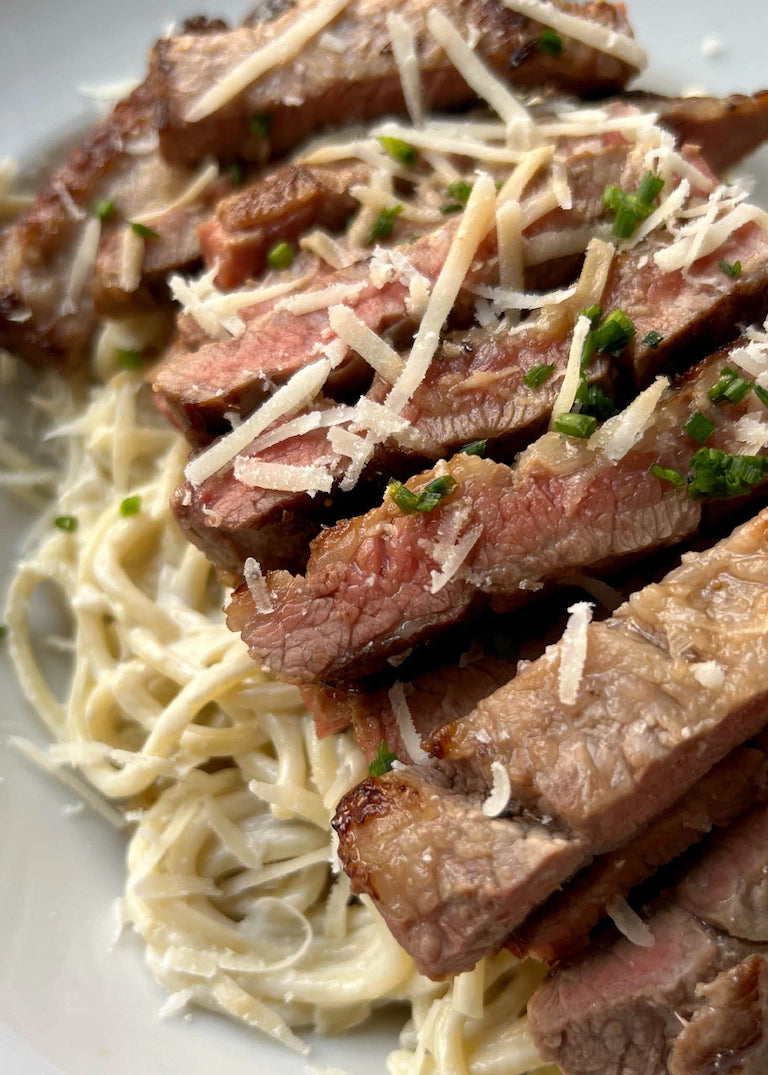
Iberian pork is known for its exceptional flavor and gastronomic quality, but its impact on health has also been debated. It is fairly well known that pork is not considered the healthiest type of meat. However, given that these are other types of pigs, it is worth asking whether their impact on health might differ.
Factors that determine whether Iberian pork is healthier or not
To answer precisely whether the Iberian pig is healthier than other types of pigs, it is necessary to analyze the different factors that influence how healthy its meat can be:
Meat quality
One of the characteristics that distinguishes the Iberian pig from other pork varieties is the quality of its meat. Rearing in the pasture and feeding on acorns and natural grasses give it a unique composition of fatty acids.
In this sense, intramuscular fat, known as oleic acid, is a monounsaturated fatty acid in the Iberian pig in higher quantities than in other pig breeds. This fatty acid is considered beneficial for cardiovascular health, as it helps to maintain adequate cholesterol levels.
In addition, the meat of the Iberian pig is rich in high-quality proteins and contains a wide variety of vitamins and minerals essential for the body. These nutrients are necessary for the proper functioning of the body and contribute to a balanced diet.
Lipid profile
The lipid profile of Iberian pork is another outstanding aspect from a health point of view. The fat present in Iberian pork has a lower content of saturated fats than other pork varieties. Saturated fats are associated with an increased risk of cardiovascular disease, so a lower amount of them in Iberian pork can be considered a favorable characteristic from a nutritional point of view.
On the other hand, compared to conventional pork, Iberian pork has a more balanced proportion of monounsaturated, polyunsaturated, and saturated fatty acids.
In addition, Iberian pork contains significant amounts of polyunsaturated fatty acids, such as linoleic acid and linolenic acid, which are essential for the body. These fatty acids have positive health effects, such as reducing inflammation and supporting brain function.
In contrast, conventional pork varieties tend to have a lipid profile with a higher content of saturated fats and a lower proportion of monounsaturated and polyunsaturated fats. This is why excessive consumption of conventional pork is associated with an increased risk of cardiovascular disease and other lipid profile-related health problems.
Fortunately, if you enjoy eating Iberian pork, you will not have to worry about this excess of potentially harmful fats for the body.
However, it is essential to remember that the fat content in Iberian pork is higher than in other pork varieties. While much of this fat is healthy due to its high oleic acid content, it is essential to moderate its consumption and maintain a balanced diet. Therefore, even this type of pork cannot be consumed in excess.
Natural antioxidants
Feeding on acorns and natural grasses also gives Iberian pork more natural antioxidants, such as vitamin E and ascorbic acid.
Vitamin E is a powerful fat-soluble antioxidant crucial in protecting the body's cells against damage caused by free radicals. These free radicals are generated from normal metabolic processes and can also be produced in response to environmental stress, such as sun exposure, pollution, and other factors.
Ascorbic acid, or vitamin C, is a water-soluble antioxidant that plays several roles in the body. In addition to its key role in the immune system, vitamin C is a potent antioxidant, protecting cells against free radicals and oxidative damage.
So is Iberian pork healthier?
The choice between consuming Iberian pork or other pork varieties should consider individual preferences and nutrition experts' recommendations. While Iberian pork may offer health benefits due to its favorable lipid profile and natural antioxidant content, it is essential to remember that a healthy diet is based on variety and balance.
Therefore, although it is clear that Iberian pork is healthier than conventional pork, this does not mean it should be consumed without moderation. As with any other food, it can form the basis of a balanced diet only if combined with a wide variety of fresh foods, such as fruits, vegetables, whole grains, and legumes.



